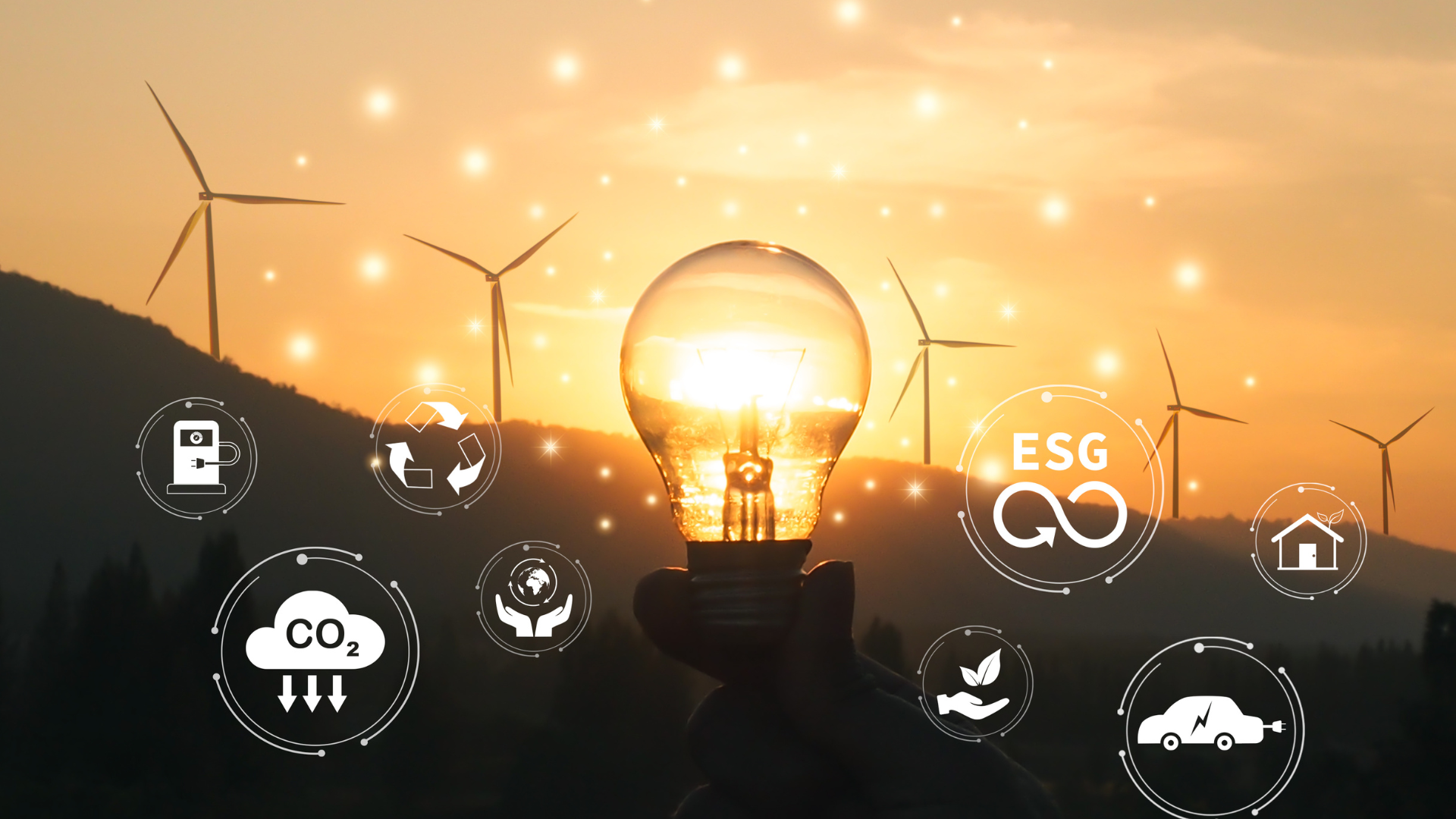Industrial intelligence is revolutionizing the way we approach energy efficiency, particularly in large-scale operations. By utilizing the power of advanced technologies like artificial intelligence, machine learning, and the Internet of Things (IoT), industries are gaining unprecedented insights into their energy consumption patterns.
This newfound intelligence helps them plan efficient energy use, reduce carbon emissions, and drive a more sustainable future.
Explore our sustainable manufacturing services today and see how we can help you reduce costs and improve efficiency.
What is Industrial Intelligence and Its Role in Energy Efficiency
Industrial Intelligence, also known as Intelligent Efficiency, refers to the application of advanced technologies like artificial intelligence (AI), machine learning (ML), and the Internet of Things (IoT) to optimize industrial processes and reduce energy consumption.
By collecting, examining, and interpreting vast amounts of data from various sources within a facility, II delivers valuable information that can be used to improve energy management, reduce costs, and minimize environmental impact. Industrial Intelligence plays a pivotal role in enhancing energy efficiency by –
- Identifying potential failures: By analyzing sensor data, II can predict equipment failures before they occur.
- Optimizing maintenance schedules: This proactive approach prevents unplanned downtime and energy losses associated with unexpected breakdowns.
- Tracking energy consumption: II continuously monitors energy usage across different systems and processes.
- Optimizing operations: Based on the insights gained, II can suggest adjustments to production schedules, equipment settings, and energy usage patterns.
- Benchmarking performance: Comparing energy usage to industry standards or historical data allows for identifying improvement opportunities.
- Identifying energy-saving opportunities: II can uncover hidden potential for building an energy management system, such as optimizing HVAC systems or improving lighting efficiency.
The Urgency of Large-Scale Energy Efficiency for a Low-Carbon Future
The escalating climate crisis, marked by extreme weather events, underscores the urgent need for large-scale energy efficiency. The window for significant action is narrowing. We must rapidly adapt to low-carbon energy sources to curb the emissions of greenhouse gas and reduce the impact of climate change.
Energy efficiency is a vital component of this transition, offering immediate benefits such as reduced energy consumption, lower carbon footprints, and cost savings. By adopting advanced industrial decarbonization technologies and implementing energy innovation strategies, industries and governments can unlock the potential of industrial energy efficiency and take a step forward in building a more sustainable planet.
How Industrial Intelligence Reduces Carbon Footprint?
Real-Time Energy Monitoring and Data Analytics
Real-time energy monitoring systems, powered by II, enable industries to track their energy consumption in detail. By analyzing this data, organizations can recognize inefficiencies, optimize sustainability and energy management solutions, and make informed decisions to reduce their carbon footprint.
Predictive Maintenance for Energy Optimization
Predictive maintenance leverages II to predict equipment failures before they occur. By preventing unplanned downtime, industries can avoid energy-intensive repairs and replacements, leading to significant energy savings and reduced carbon emissions. Ingenero’s Industrial Intelligence platform leverages predictive maintenance not only to preempt equipment failures but also to optimize overall operational workflows.
Smart Grid Technologies for Carbon Emission Reduction
Smart grid technologies, powered by II, enable a more efficient energy use and sustainable energy distribution system. These industrial decarbonization technologies also facilitate the integration of renewable energy management solutions, further reducing reliance on fossil fuels.
Key Technologies Driving Energy Efficiency in Industrial Settings
The Role of IoT in Connecting Industrial Equipment for Energy Management
The Internet of Things (IoT) is transforming the outlook of industrial energy management solutions by connecting various equipment and devices to a network. This connectivity enables real-time monitoring of energy consumption, identification of inefficiencies, and remote control of systems.
IoT devices, like smart sensors and controllers, collect data on energy usage, temperature, and other relevant parameters. This data is then analyzed to optimize energy consumption and reduce operational costs.
AI and Machine Learning: Optimizing Energy Usage and Predicting Needs
Artificial intelligence (AI) and machine learning (ML) algorithms are powerful tools for optimizing energy usage and predicting future energy needs. By evaluating historical data and real-time information, AI and ML models can identify patterns, trends, and anomalies in energy consumption.
This enables industries to make data-driven decisions to improve energy efficiency. Additionally, AI and ML can predict future energy demands based on factors such as weather conditions, production schedules, and external market factors. This predictive capability allows industries to adjust their energy consumption to meet future needs proactively.
Smart Sensors and Meters for Real-Time Energy Tracking
Smart sensors and meters are essential components of an energy efficiency building, as a part of its industrial energy management solution. These intelligent devices collect and transmit data on energy consumption, temperature, humidity, and other relevant parameters.
By analyzing this data in real time, industries can identify energy-intensive processes, equipment malfunctions, and opportunities for optimization. Smart sensors and meters also enable remote monitoring and control of industrial equipment, allowing timely adjustments to improve energy efficiency of solar panels and similar equipment.
The Benefits of Large-Scale Energy Efficiency for Industries and the Environment
- Cost Savings and Operational Efficiency: By controlling energy consumption, industries can lower energy costs and improve operational efficiency, increasing productivity and reducing downtime.
- Reducing Carbon Emissions and Environmental Impact: Energy efficiency and decarbonization solutions help lower greenhouse gas emissions, improve air and water quality, and promote sustainable resource management in a low carbon economy.
- Improved Regulatory Compliance and Sustainability Goals: By adopting energy-efficient practices, industries can meet regulatory standards, enhance their corporate reputation, and achieve energy sustainability goals.
Looking to improve safety and compliance? Learn more about our process safety management services today.
Challenges in Implementing Industrial Intelligence for Energy Efficiency
Overcoming Barriers to Low-Carbon Technology Adoption
Implementing Industrial Intelligence can be hindered by factors like initial investment costs, lack of technical expertise, and resistance to change within organizations. Addressing these challenges demands a strategic approach that balances short-term costs with long-term benefits.
Addressing Concerns Around Data Security and Investment Costs
Data security is a major concern when implementing II. Strong cybersecurity measures must be in place to protect sensitive information. Additionally, justifying significant upfront investment costs requires a clear understanding of potential return on investment (ROI) and the alignment of II initiatives with overall business objectives.
Conclusion
Ingenero is driving industrial decarbonization by leveraging AI, IoT, and blockchain. Our process analytics and applied AI expertise enable us to optimize operations, reduce emissions, and achieve a sustainable future for industries.



